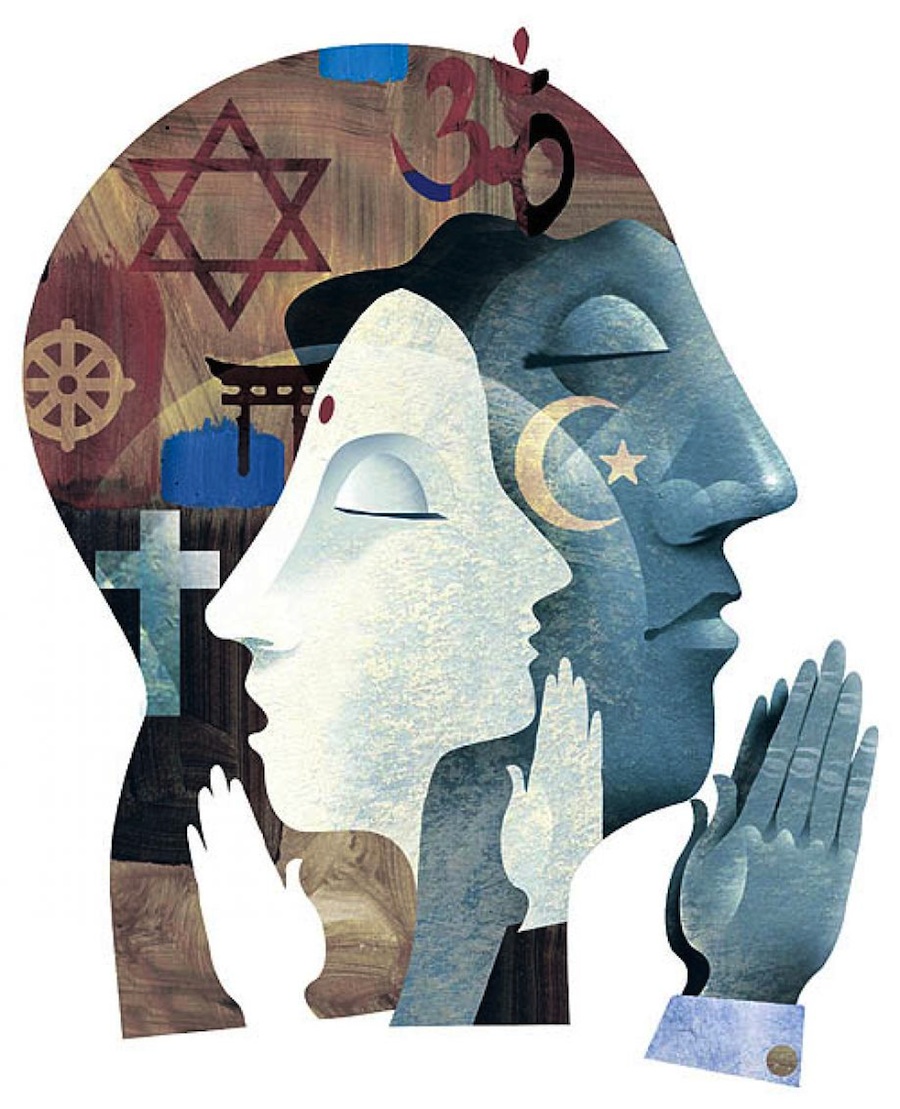I have been interested in religion since I can remember. It has been part of my life for a long time. I look forward to deep conversations with my dad about the nature of the world and sharing interesting facts we find. I remember my mom trying to explain biblical stories in a less terrifying way after my very passionate gramma told me about hell. I love researching any religion and trying to understand the ways they interact with other parts of life.

As I grow older, I have become more aware of how religion interacts with politics. Religion is still a daily part of life, but not always willingly or in the name of understanding. Now, I see politicians using religion as a tool or weapon, a way of separating “us” and “them.” When I turn on the news or open Facebook I am flooded with arguments about religion’s place in America. It isn’t just about religion, but specifically Christianity.
I find myself in a difficult spot. As someone who loves learning about religion and appreciates what it is, I can’t imagine a fully secular government. I fear the situation in France where they ban any visual sign of religion in public schools in the name of secularism. On the other hand, I see what happens when religion and politics intermingle. I have experienced the fear of not being able to get married one day or not being able to choose the fate of my body.
In a national sense, people have very polar views about religion’s place in America’s government. For this blog post, I wanted to read one conservative article and one liberal article to get a broader understanding of what is going on.
The first article I read was from “The New Republic”, a group generally associated with the left. The article was called, “The Rise of Spirit Warriors on the Christian Right. The first thing you see upon opening the article is a huge depiction of a suit-wearing man with a snake tongue holding a sword and a Bible. He is above a yelling crowd of people holding American flags with crosses fixed at the top. The picture reminds me of the classic style of Communist propaganda that is so often satirized. That being said, this is not something I expected in a left-leaning non-satirical article.

The article itself doesn’t really fit the tone that the opening picture sets. It explains how America has gone through phases of change in its relationship with religion and that we are currently going through one of those phases. Modern media seems to focus on the rise of those who don’t particularly identify with any religion but misses the change in those who do identify with religion. The article says that religious people are becoming “hotter and more reactionary” and are a threat to democracy. It cites examples of this from extremist groups like the New Apostolic Reformation to more famous politicians like Ron DeSantis. I think the most telling example of this is DeSantis quoting the Bible in a speech and switching the word “devil” to “the left.”
The article goes on to explain that the rise in “spiritual warfare” is due to a growing popularity of Pentecostalism. That is a subsection of Christianity that focuses more on the present battle of good and evil rather than the afterlife. Despite this, the article reinforces that these beliefs are deeper than any one event, person, or religion, and to truly protect democracy we need to understand that.
The supposedly more conservative article, “Russell D. Moore: A Podcast on Religion on Politics” from the “National Review,” really interested me. The article states, “Many people say that religion is a threat to politics. It’s also true that politics is a threat to religion.” Moore criticizes the hypocrisy of politicians and followers that try to use religion to gain support and recognizes that authoritarian governments use either the promoting or banning of religion to take control. I didn’t expect this article to imply that religion is indeed a threat to democracy, let alone critique “religious” politicians and their followers.

I think reading these two articles made me realize something. Extremism is the problem. I was stuck in a cycle of all-or-nothing, but that didn’t lead me anywhere. I don’t think anything should be banned in the name of religion, of course, but that doesn’t seem to be the only thing that the conversation is about. These articles are talking more about the people who use religion to get power, and not necessarily what they are doing with it.
https://newrepublic.com/article/170027/rise-spirit-warriors-christian-right-politics
https://www.nationalreview.com/corner/religion-and-politics-a-bloody-crossroads/
https://www.diplomatie.gouv.fr/en/coming-to-france/france-facts/secularism-and-religious-freedom-in-france-63815/article/secularism-and-religious-freedom-in-france